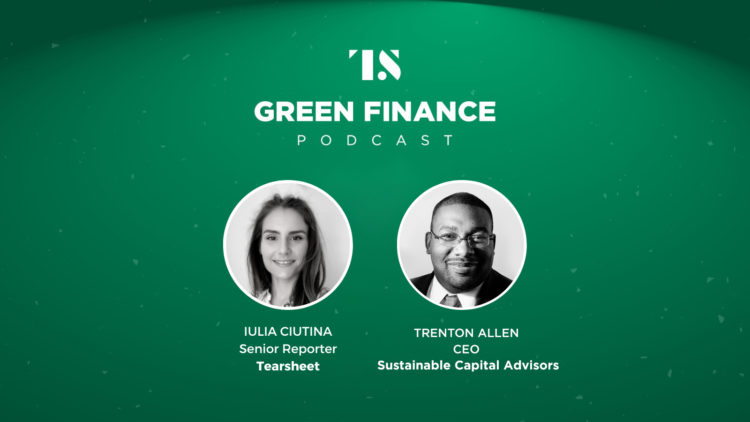The Green Finance Podcast
The Green Finance Podcast Ep. 7: Connecting capital to sustainable projects with Trenton Allen, CEO of Sustainable Capital Advisors
- Climate change awareness is growing, and it’s starting to bring more capital along with it. But the ecosystem is still new, and many connections are yet to be made.
- Today we are chatting with Trenton Allen, CEO of Sustainable Capital Advisors, a DC-based financial advisory firm serving the sustainable infrastructure industry.








